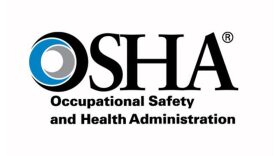
Arielle Zionts
KHN ReporterArielle Zionts, Rural Health Care Correspondent, is based in South Dakota. She primarily covers South Dakota and its neighboring states and tribal nations.
Arielle previously worked at South Dakota Public Broadcasting, where she reported on business and economic development. Before that, she was the criminal justice reporter at the Rapid City Journal and a general assignment reporter at the Nogales International, on the border of Arizona and Mexico. She graduated from Pitzer College in Claremont, California. Arielle lives in Rapid City with her cat, Sully.
-
A South Dakota man will spend seven-and-a-half years in federal prison and owe more than $24 million in restitution after orchestrating a "cattle Ponzi scheme."
-
The state of South Dakota and the Sioux Falls Catholic school system have filed a lawsuit against the federal government over a new requirement that large companies enforce COVID-19 vaccinations or regular testing and masking of employees.
-
South Dakota plans to sue the federal government after it said private companies with 100 or more workers must require COVID-19 vaccinations or testing and masking.
-
The union for the Smithfield plant in Sioux Falls is sharing concerns about work conditions as the company says it's trying to address a worker shortage.
-
The Occupational Safety and Health Administration is investigating after a Dell Rapids woman was killed by a suspected construction vehicle accident in Sioux Falls.
-
The David Lust Accelerator Building will provide office, lab and meeting space for new startups. It's also the permanent home for economic development agencies that will serve as a resource to those startups.
-
-
Defense lawyers say charges against Nick Tilsen should be dropped after the prosecutor wrote a letter with negative comments that was sent to possible witnesses. The prosecutor says the comments are irrelevant to Tilsen's charges.
-
SAB Biotherapeutics is going public as it continues testing its COVID-19 treatment.
-
An Iowa company wants to capture and transport carbon dioxide emissions through South Dakota before storing it in North Dakota.










